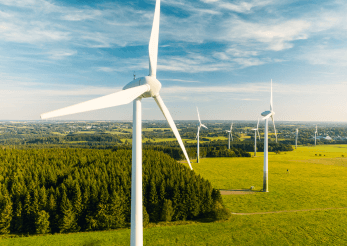Domestic Wind Turbine Potential in Ireland
Wind conditions & yield estimates
- Ireland is one of the windiest countries in Europe. According to the SEAI’s wind atlas and Irish renewable energy reports, good wind sites (especially coastal, elevated, and open terrain) can give average wind speeds of 6–8 m/s at turbine hub height. Sustainable Energy Authority of Ireland+1
- In practice, many domestic turbines will produce in the range of 3 to 15 kWh per day (or more, for larger ones), depending heavily on wind speed, turbine size, and tower height. GreenMatch.co.uk
- A 5 kW turbine in good wind might produce 10,000–15,000 kWh per year (or more) under ideal conditions.
- For smaller turbines (1–3 kW) in moderate wind, annual yields might range 2,000–8,000 kWh, depending on siting.
🏠 Case Study / Hypothetical Example (for your site assessment)
Here’s a sample scenario you could embed or run for clients (adjust with real wind data):
| Parameter | Value / Assumption | Notes / Sources |
|---|---|---|
| Location | Coastal / exposed hill in Lorkland region | Use local wind maps or SEAI wind atlas to get data |
| Average wind speed at hub height | 7 m/s | Good benchmark for Irish coastal/hill |
| Turbine | 6 kW (e.g. SD6) | See recommended list below SD Wind Energy |
| Rotor diameter | ~5.6 m | SD6 spec SD Wind Energy |
| Capacity factor | ~25–30 % | Realistic for domestic turbines under good wind |
| Estimated annual energy | ~13,000 kWh | (6 kW × 8,760 h × 0.25) |
| Household usage | ~4,500 kWh/year | Typical for a large home + heating loads |
| Excess export / battery storage | ~8,500 kWh | Could feed back to grid or charge batteries |
Interpretation: In a favorable site, a 6 kW turbine could supply the bulk of a larger household’s electricity, with surplus for export or battery storage. But if your site is more sheltered (wind speeds 4–5 m/s), the returns will drop significantly.
You can run similar tables using the actual wind data for a client’s location (using SEAI wind map, local anemometer data, or wind resource assessment).
✅ Best Domestic / Small Wind Turbines for 2026 (Options You Can Source / Promote)
Here are some small-to-mid domestic turbine kits that are currently available (or likely to remain relevant). Always check specs, warranties, and local compatibility before committing.

VEVOR 800W 3‑Blade Kit
€161.99
•
vevor.eur + others

VEVOR 500W 3‑Blade Kit
€104.99
•
vevor.eur + others

VEVOR 500W 5‑Blade Kit
€130.90
•
vevor.eur + others

3000W Wind Turbine Complete Kit
€295.98
•
Dartello

5000W Wind Turbine Complete Kit
€935.26
•
Dartello

New Energy 2‑3kW Turbine
€310.20
•
54 Energy

2000W 5‑Blade Turbine
€208.99
•
AliExpress

Vertical Axis 3000W Turbine
€256.99
•
AliExpress
Here are some highlighted ones:
- 5000W Wind Turbine Complete Kit – higher output option for more ambitious homes or small farms
- 3000W Wind Turbine Complete Kit – good middle ground
- New Energy 2‑3kW Turbine – suitable for moderate energy usage
- VEVOR 800W 3‑Blade Kit – smaller scale, useful as supplemental in a hybrid system
- VEVOR 500W 3‑Blade Kit – ultra-small, for very limited power needs
- VEVOR 500W 5‑Blade Kit – five-blade design might capture lower-wind better
- 2000W 5‑Blade Turbine – good stepping up from micro scale
- Vertical Axis 3000W Turbine – vertical axis (VAWT) option, useful in turbulent or multi-direction wind sites
🛠️ What You Need to Do / Check for Each Installation
- Wind assessment & site survey
- Use SEAI wind atlas or local measurement to estimate wind speeds at hub height
- Check for obstructions (trees, buildings) causing turbulence
- Tower height & rotor clearance
- Taller towers almost always yield better results
- Make sure rotor is above turbulence zone
- Permitting / planning compliance
- In Ireland, domestic turbines may have restrictions on height and rotor diameter (e.g., ≤ 20 m total height, rotor diameter ≤ 8 m in some rules) CarbonFreeHeat
- Consult local planning authority
- Grid connection / export rules
- If exporting excess power, check grid-tie regulations, feed-in tariffs (if available), and metering
- You may need inverter, switching gear, protection
- Foundations & structural design
- Tower base, reinforcement, wind loads must be engineered (foundation, concrete, anchors)
- Electrical systems & control
- Turbine → controller → inverter → home grid or battery
- Over-speed protection, cut-in / cut-out speeds, braking systems
- Maintenance & warranty
- Regular blade inspections, lubrication, structural checks
- Warranty duration, parts availability









